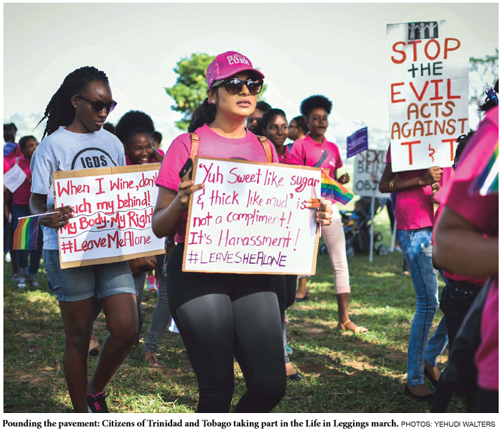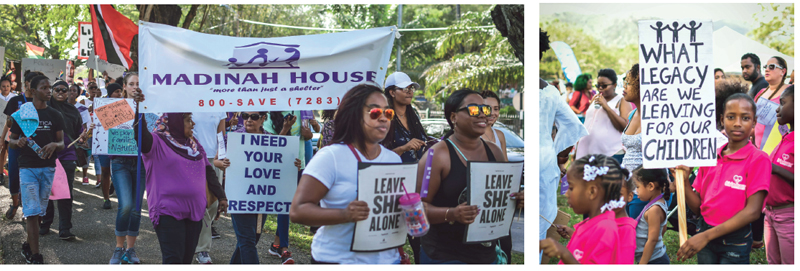|
March 2017

Issue Home >>
|


 The theme of International Women’s Day 2017, commemorated on March 8, was #BeBoldForChange. This was an important call given the challenges which still exist to full gender equality and equity around the world and region. In the Caribbean, recent reports suggest that too many women remain vulnerable to interpersonal violence and too few are represented at the highest levels of political and economic decision-making. The theme of International Women’s Day 2017, commemorated on March 8, was #BeBoldForChange. This was an important call given the challenges which still exist to full gender equality and equity around the world and region. In the Caribbean, recent reports suggest that too many women remain vulnerable to interpersonal violence and too few are represented at the highest levels of political and economic decision-making.
Aiming for Planet 50-50 by 2030 is therefore a bold and ambitious agenda requiring shifts to labour and power in the domestic sphere as well as in public life. For example, the World Economic Forum predicts that, at the current rate of progress, the gender gap across health, education, economy and politics won’t close entirely until 2186. We won’t achieve key sustainable development goals at this pace.
In Trinidad and Tobago, the IGDS, UWI St. Augustine collaborated with two dozen other civil society and corporate organisations, as well as the Office of the Prime Minister (Gender and Child Affairs) and UN Women, to organise a Life in Leggings solidarity march, which simultaneously took place on March 11 in Barbados, Antigua and Barbuda, Trinidad and Tobago, Dominica, The Bahamas, Guyana, and Jamaica. Life in leggings is a movement begun by two young women from Barbados to break silences around, especially, young women’s experiences of sexual violence of all kinds, from child sexual abuse to street and workplace harassment.
The IGDS also collaborated with I95.5 to share messages across radio that would both raise consciousness about women’s rights as well as call for communities to recognise leaders for gender equality in our midst. Statements broadcast included: “wherever they are, women have a right to be safe”; “the home isn’t just women’s responsibility, share the care”; “if a woman says no, walk away, sexual relations need consent”; “The state is responsible for upholding women’s rights. You can hold public officials accountable”; and “Let’s honour women who are the strength of our communities”. These signaled the commonsense nature of gender equality, and women’s rights as everyone’s responsibility.
As Dr Gabrielle Hosein, Head of the IGDS reflected, “The UWI is a key site for teaching another generation those skills which they can put toward Caribbean transformation. We have a leadership role to play in advancing women’s rights and gender equality, and continue to collaboratively and collectively encourage our nation and region to be bold for change.”

|





